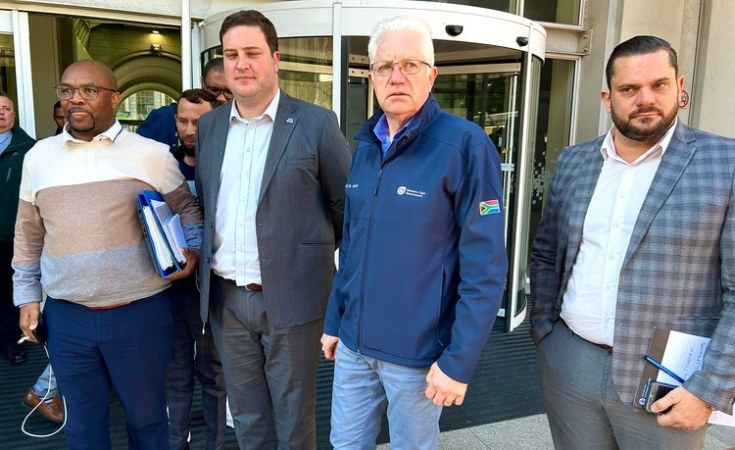The strike was called without notice and badly affected businesses, learners, clinics and government services
- The Western Cape minibus taxi strike in August, called without notice, cost the provincial economy R5-billion and caused reputational damage to the country, Parliament was told on Thursday evening.
- Five people died and the strike was marred by violence and attacks on other transport providers.
- The National Minister of Transport encouraged all sides to stick to the post-strike agreement that has been made an order of the court.
The recent minibus taxi strike cost the Western Cape economy an estimated R5- billion and at least R18-million in damages in the City of Cape Town alone, according to Western Cape MEC for Mobility Ricardo Mackenzie.
In a presentation to the Transport Portfolio Committee on Thursday night, Mackenzie said 38% of businesses had been unable to sustain their daily activities, 72% suffered revenue losses, and 19% lost more than half their daily income. Poor areas were impacted the most, with 16% of businesses indicating that workers could not travel from Khayelitsha.
The strike was called without notice by the South African National Taxi Council (SANTACO) on 3 August, citing the impoundment of vehicles as the main issue.
Mackenzie said the provincial government would continue to work with the City and national government on a way forward and address concerns.
"When I started [as MEC] in February 2023, we started a taxi task team. The taxi industry wanted to go on strike the day before ... We managed to agree to avert that strike and try to look at the matters affecting the minibus taxi industry."
Issues included the upskilling of drivers, access to technology to monitor and improve driving behaviour, and operating licenses issued for the B97 route between Bellville and Paarl.
Mackenzie chaired the task team meetings but said that SANTACO had withdrawn from the process in late July, citing a lack of progress and the impoundments.
"There was a lot of violence and disruption, particularly to commuters in Cape Town but also throughout the Western Cape," said Mackenzie of the strike.
Five people were killed in related incidents, while 120 people were arrested for looting and damage to property. Nine Golden Arrow Buses were gutted, to the tune of R2.9 million per bus. MyCiTi buses suffered damages from stoning incidents. Government vehicles were also targeted.
The strike affected schooling. Between 60% and 70% of learners were unable to get to school, with 728,000 unable to attend school on 10 August.
People were unable to collect medication at local clinics.
Mackenzie said the reputational damage to South Africa was significant. "It also took place during the Netball World Cup. It was extremely negative."
He thanked the police services for doing their best to prevent damage to property.
However, he said, "Every crisis brings us opportunity. Public transport needs to be addressed."
National minister's intervention
National Minister of Transport Sindisiwe Chikunga told the committee that much continues to be said about the root causes of the conflict and the proposed way forward.
"Hecklers continue to narrate that it was the Minister of Transport that came up with the issue of by-laws," she said. "On the contrary, it was the Department of Transport, upon obtaining the briefing from SANTACO Western Cape, that established that the root cause was the implementation of conditions put on the operating licenses by the Province and Implemented by the City."
She said she met with SANTACO at their office in Bellville on Friday 4 August. "In this meeting, I expressed my concern about the suspension of the services as well as the associated violence and the brutality that seemed to have occurred. I wanted to know from SANTACO what the root causes of the conflict were and possible proposals for a solution."
She said SANTACO indicated their main concern was impoundments. She said she met with officials from the City and Province later on the same day. "There were a series of meetings up to 10 August. We also led a series of meetings in our efforts to bring the parties together."
She said the issues should be guided by law and called on all parties to respect the post-strike agreement that had been made a court order.
Several MPs said the discussion shouldn't be limited to the Western Cape as the taxi issue was one that affected the whole country. They also stressed that SANTACO should be invited to the next meeting to give their side of the story.
Mathabatha Mokonyama, Deputy Director General of Public Transport, said uniformity was needed in how the National Land Transportation Act (NLTA) was interpreted. He said the Department would be drafting guidelines.
The City of Cape Town sent apologies for not being able to attend the meeting, MPs were told.
Meanwhile, officials from SANTACO, the City and the Province are set to embark on a three-day imbizo on Monday to discuss some of the issues.


